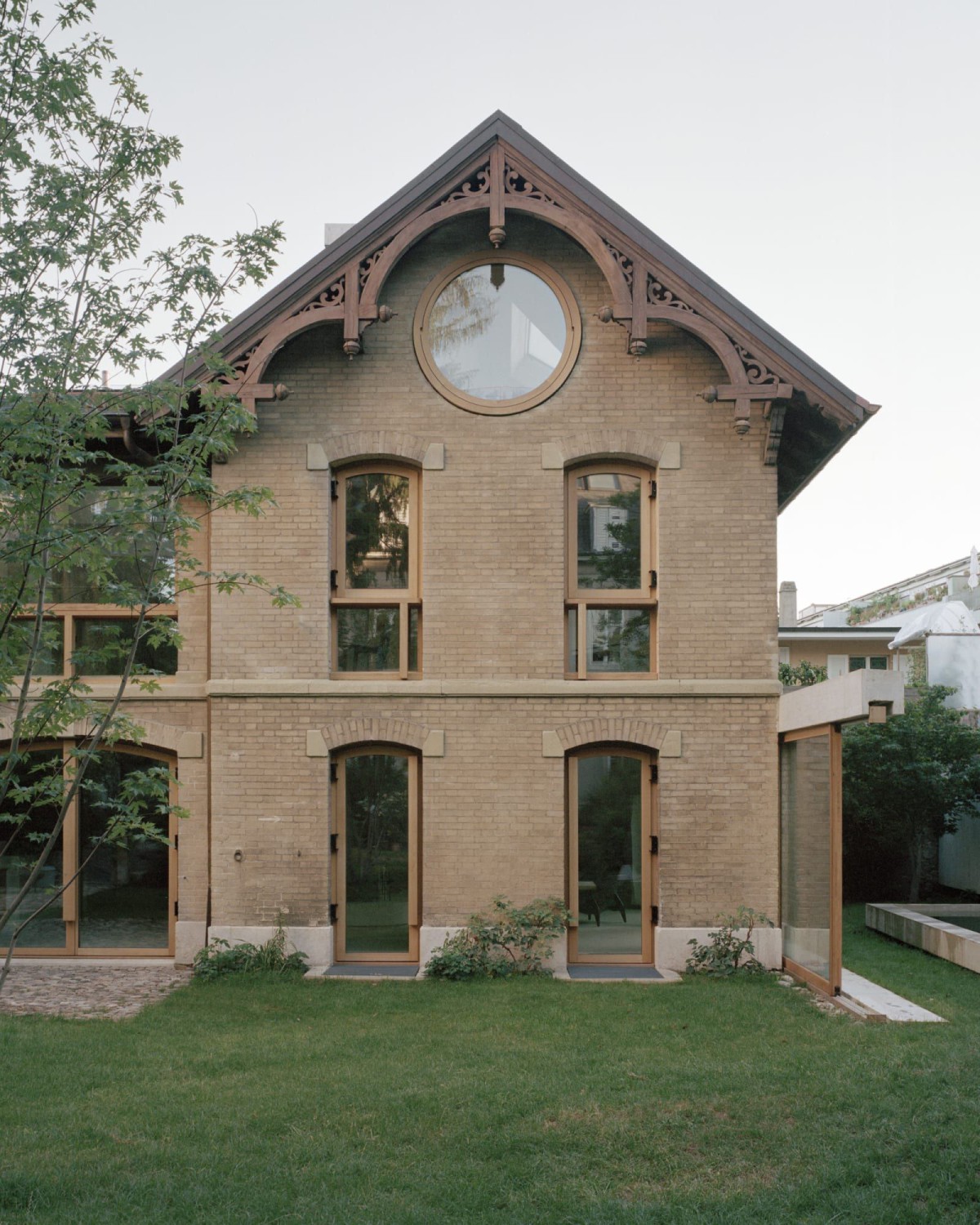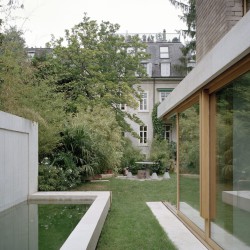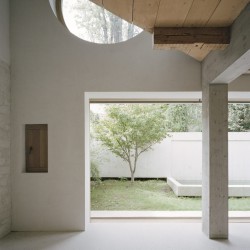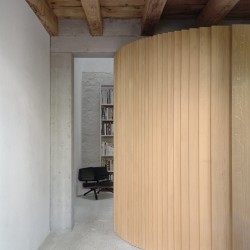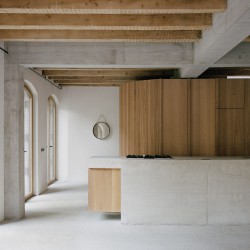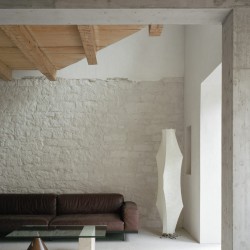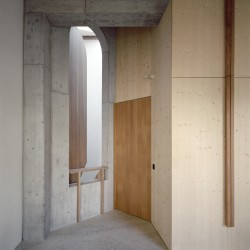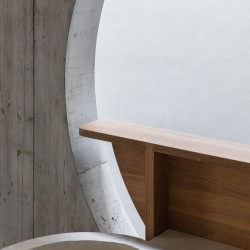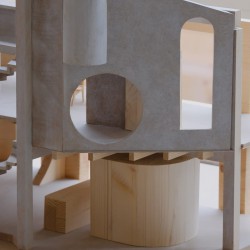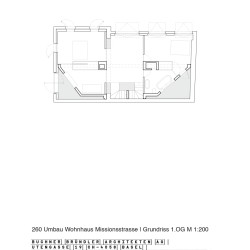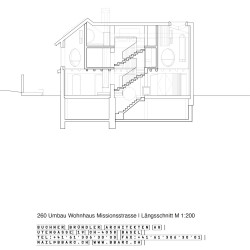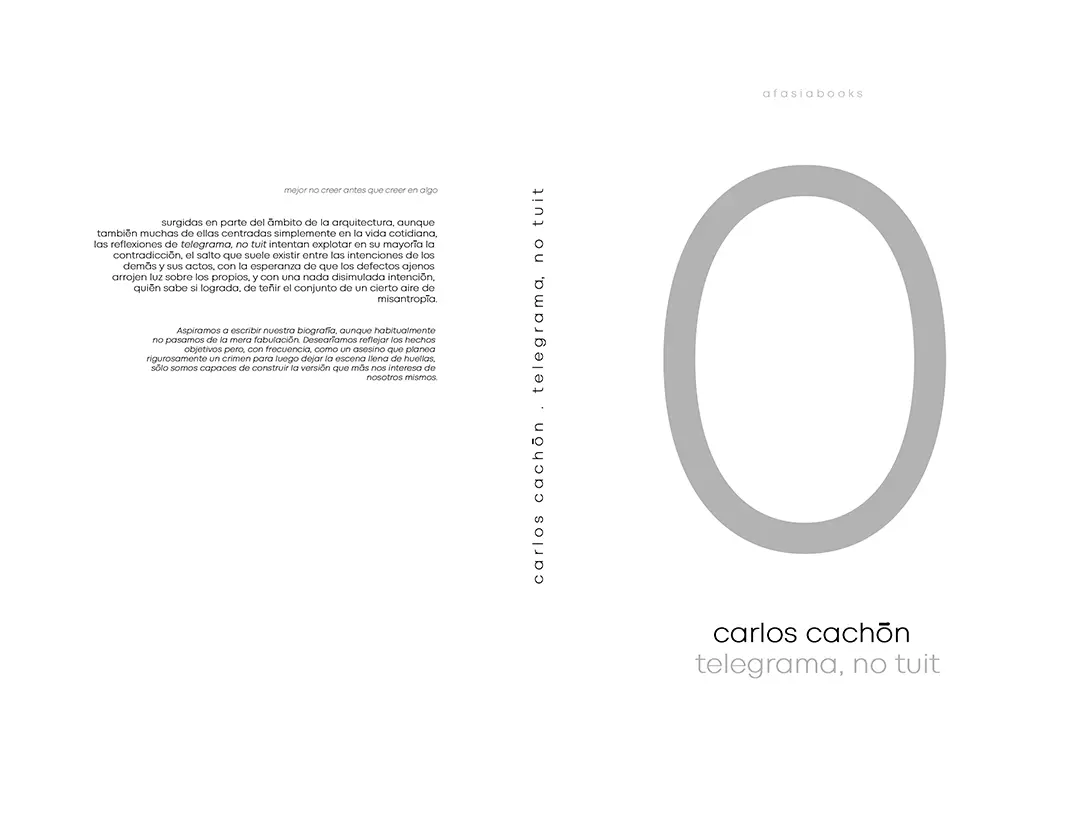Not far from the Spalentor, a narrow path leads into a park-like courtyard shielded from the street. In its rear part, a carriage house was built around 1880 in addition to the villa located on the property. The service building was separated by a massive Quarrystone wall into a utility area with stables, carriage room and hayloft and a living area for the servants. After the villa was demolished for the construction of a peripheral building at the beginning of the 20th century, the carriage house was used for other purposed, for example as an atelier, but essentially remained in its original typology.
Due to the two-sided firewalls, which the existing building adjoins to the south-east and south-west, almost no direct daylight reaches the interiors of the existing building. The intervention responds to the unfavourable light situation with an open room composition. Firstly, the formerly separated parts of the building are brought together by cutting a double-storey circular opening into the dividing wall. In addition, the existing structural system is overlaid by a concrete structure cast in situ, which creates a variety of situationally shaped spaces, including two atriums that lead zenithal light to the garden level. New roof windows fill the volume with a natural brightness – differently shaped openings in the concrete panes lead the light further into the interior of the house.
The concrete structure appears like a colossal table with its striking supports and beams. Pre-stressed beams allow for large spans. Concrete in different colours, smoothly plastered surfaces and slurried natural stone walls aswell as elements of oak and fir give the interiors a haptic as well as lively materiality. The historic cement stone façade retains its characteristic appearance; only windows made of solid oak refer to the new purpose. The roof is covered with slate again. The side façade is generously opened by a double sliding door. Its drop arm with guide rail extends beyond the main façade into the garden space.
_
Missionsstrasse, Basel
Project Planning 2018
Implementation 2019 – 2020
Architecture Buchner Bründler Architekten
Partner Daniel Buchner, Andreas Bründler
Project managementJon Garbizu Etxaide
StaffNina Kleber, Sharif Hasrat
Photographer Rory Gardiner, Maris Mezulis

